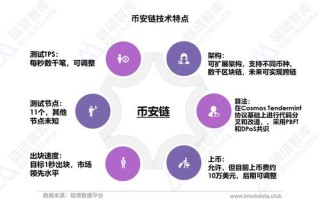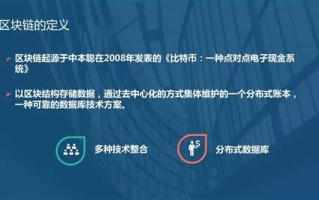Exploring the Potential of Blockchain in the Field of Finance
Blockchain technology has been making waves across various industries, and the financial sector is no exception. From revolutionizing payment systems to enhancing security in transactions, blockchain has the potential to transform the way we handle financial processes. Let's delve into the ways blockchain is filling gaps and reshaping the finance industry.
1. Transparency and Security
Blockchain operates on a decentralized ledger system, where each transaction is recorded across a network of computers. This transparency ensures that all participants have access to the same information, reducing the risk of fraud and manipulation. Additionally, the cryptographic nature of blockchain makes it extremely secure, as each transaction is linked to the previous one, forming an immutable chain.
2. Efficient CrossBorder Payments
Traditional crossborder transactions often involve intermediaries, resulting in delays and high transaction fees. Blockchain technology streamlines this process by enabling peertopeer transactions without the need for intermediaries. Smart contracts can automate the execution of transactions once predefined conditions are met, further reducing processing times and costs.
3. Financial Inclusion
One of the significant advantages of blockchain is its ability to provide financial services to the unbanked and underbanked populations. By leveraging blockchainbased platforms, individuals without access to traditional banking systems can participate in financial activities such as receiving loans, making payments, and accessing insurance services. This inclusion can empower marginalized communities and spur economic growth.
4. Tokenization of Assets
Blockchain facilitates the tokenization of various assets, including real estate, stocks, and commodities. By representing assets as digital tokens on a blockchain network, ownership can be easily transferred, divided, and traded in a transparent and efficient manner. This opens up opportunities for fractional ownership, liquidity enhancement, and broader market access.
5. Smart Contracts and Automation
Smart contracts are selfexecuting contracts with the terms of the agreement directly written into code. These contracts automatically enforce and execute the terms when predefined conditions are met, eliminating the need for intermediaries and reducing the risk of disputes. Smart contracts can be used in various financial applications, including insurance, trade finance, and supply chain management, enhancing efficiency and reliability.
6. Regulatory Compliance

Blockchain technology can facilitate regulatory compliance by providing a transparent and auditable record of transactions. Through the use of permissioned blockchains, where access is restricted to authorized participants, regulators can monitor transactions in realtime, ensuring compliance with relevant laws and regulations. Additionally, blockchainbased identity management systems can enhance KYC (Know Your Customer) and AML (AntiMoney Laundering) processes, mitigating the risk of financial crimes.
Conclusion
Blockchain technology holds immense potential to transform the finance industry by enhancing transparency, security, and efficiency. From streamlining crossborder payments to enabling financial inclusion, blockchain is filling critical gaps and revolutionizing traditional financial processes. However, widespread adoption will require addressing scalability challenges, regulatory concerns, and interoperability issues. Despite these challenges, the future of finance looks increasingly decentralized and blockchaindriven.
With continuous innovation and collaboration between industry stakeholders, blockchain has the power to reshape the financial landscape, ushering in a new era of trust, accessibility, and efficiency.
I've outlined how blockchain technology is reshaping the finance industry, covering key areas such as transparency, security, crossborder payments, financial inclusion, asset tokenization, smart contracts, and regulatory compliance. Let me know if you need further elaboration on any of these points or if there's anything else you'd like to explore!
标签: 区块链跟ntf有啥关系 区块链工程师 区块链教程 区块链骗了多少人 区块链.nft







